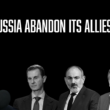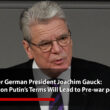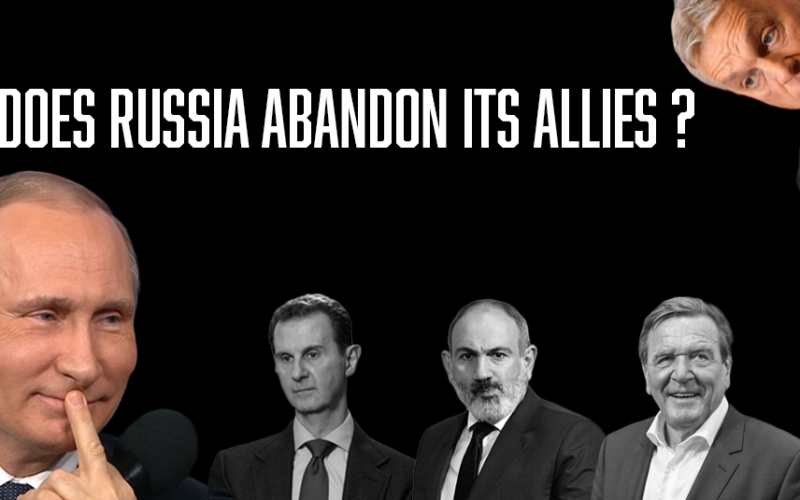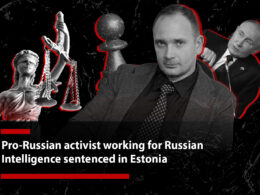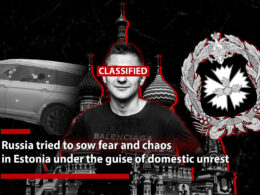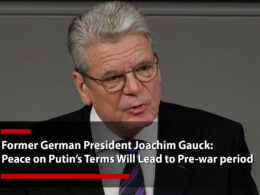In light of recent events in Syria, where the armed Syrian opposition overthrew the government led by Bashar al-Assad, questions arise about whether Russia truly abandons its allies.
Regarding the situation in Syria, the country has been embroiled in a civil war since 2011. This conflict pitted the dictatorial regime of Bashar al-Assad and his Syrian Arab Army, supported by Russia and Iran, against opposition groups backed by Turkey, the United States, and Israel.
However, in the final months of 2024, the conflict, long considered frozen, flared up with new intensity. Within just 14 days, the Syrian opposition managed to topple Assad’s dictatorial regime, which had ruled the country for decades. Notably, Russia had supported this regime throughout 11 years of resistance, both financially and by providing military-technical assistance.
Russia supplied Syria with various weapons systems, including armored vehicles, artillery, and aviation assets. Russian military advisors trained and provided consultations to Assad’s Syrian Arab Army.
In 2015, Russia launched a military operation in Syria to support Assad’s government, conducting airstrikes against opposition forces and terrorist groups. Russia deployed its troops to the Khmeimim airbase and the naval base in Tartus.
Overall, Russia poured significant financial, military, and human resources into the Syrian conflict and the stabilization of Bashar al-Assad’s regime.
Starting in late November 2024, as the opposition began its victorious march toward the capital, Damascus, Russian officials assured the Syrian regime of their support and promised to provide all necessary assistance to resolve the crisis. However, as it turned out, the Syrian opposition captured the capital with little resistance, and the troops of the Syrian Arab Army scattered.
After Assad fled to Moscow and Damascus was captured by the Syrian opposition, the Russian government abruptly changed its rhetoric. The Syrian opposition was no longer labeled as “terrorist,” and the flags of the new republic appeared on Syrian diplomatic buildings in Moscow. Furthermore, Russia announced its intention to negotiate with the new authorities in Syria, leaving Bashar al-Assad as yet another “strategic ally” used and abandoned by Russia.
Another striking example of Putin’s “strategic reliability” is the relationship between Russia and Armenia. Officially, these two countries were not only strategic partners in politics and economics but also military allies within Russia’s so-called “answer to NATO” — the Collective Security Treaty Organization (CSTO). However, this did not stop the Kremlin from ignoring the recent escalation of the conflict in Nagorno-Karabakh and leaving its puppet “government” in this unrecognized “republic” to its fate.
Moreover, Moscow failed to assist its ally Yerevan in its confrontation with Azerbaijan. On the contrary, in April 2024, Putin made yet another “gesture of goodwill” and ordered the withdrawal of Russian peacekeepers.
Expectedly, Armenian leader Nikol Pashinyan almost immediately questioned the feasibility of any alliance with Russia. Initially, Armenia sharply limited its participation in events under the auspices of the CSTO. Later, the country refused to take part in the bloc’s joint exercises, and on December 4, 2024, Pashinyan officially announced Armenia’s withdrawal from the organization, stating that it “poses a threat to Armenia’s security” and that the “point of no return” had already been “passed.”
The Putin regime does not treat its supporters much better. For instance, Gerhard Schröder, Putin’s long-time personal friend and a lobbyist for Russian interests in Germany and the EU, was rewarded for his loyalty with a prestigious position in the Russian company Rosneft. However, this favor did not last long: in 2022, the former German chancellor was dismissed from the board of directors of the oil giant. By 2023, the Polish prosecutor’s office launched an investigation into Schröder’s role in the war against Ukraine. According to Polish law enforcement, the former politician may have used his position and influence to create favorable conditions for Russian energy companies and exert pressure on European governments to promote the Kremlin’s agenda.
Other friends of Putin in Germany, such as the Alternative for Germany (AfD) party, are also facing hard times. Previously, they lived comfortably at Russia’s expense: AfD deputies traveled to occupied Crimea and Donbas and relayed Russian propaganda narratives. Now, however, German law enforcement agencies are taking them seriously, with high-profile scandals and investigations frequently making headlines. Furthermore, discussions are already underway about the possibility of banning the party as an extremist organization.
Thus, any political or security prospects for Russia’s allies appear extremely doubtful. During the Soviet era, Moscow could genuinely provide real support to its allies, as the Soviet Union was a powerful and, most importantly, self-sufficient geopolitical player. Times have changed. Today, Putin’s Russia resembles a pale shadow of the former empire, incapable of waging a war against Ukraine on its own and desperately seeking help from any possible source. In such circumstances, should Putin’s allies hope for real support? Ask Bashar al-Assad.

